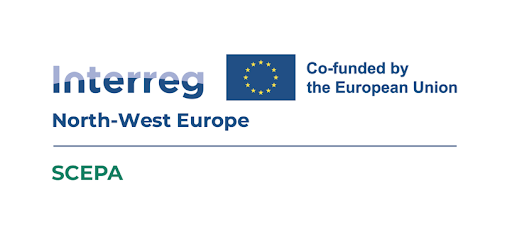Press
EU supports scaling up energy poverty approaches with Interreg subsidy
The EU recently allocated an ERDF subsidy to the Interreg North-West Europe (NWE) project ‘SCEPA’. SCEPA is short for ‘Scaling up the Energy Poverty Approach’ and the main objective of this project is to reduce and alleviate energy poverty by engaging and empowering vulnerable households. The project duration is 4 years, and the total project budget is € 6,3 million. SCEPA launched in April 2023.

Energy poverty occurs when energy bills represent a high percentage of consumers' income, or when they must reduce their household's energy consumption to a degree that negatively impacts their health and well-being. Within NWE (excl. Switzerland) over 3.5 mil. Households (2021) are found to suffer from energy poverty and the number is rising. It has been deemed a major challenge by the European Commission. Proven measures to alleviate energy poverty are available but are often only applied under local conditions and not suitable for uptake to reach the - growing - target of vulnerable households and the organisations that support them. Especially hard-to-reach vulnerable households require tailor-made approaches.
Instead of reinventing the wheel, SCEPA gathers and enhances existing effective energy poverty approaches in order to be able to upscale initiatives. SCEPA consists of three pilot groups, namely: awareness and behavioral change (1), energy communities (2), and technical measures (3).
SCEPA consists of 5 types of organisations:
- Local & regional public authorities: Mun. of Arnhem (NL) -LEAD PARTNER-; Mun. of Leeuwarden (NL); Mun. of Liege (BE - Wallonia); West Vlaamse Intercommunale (BE - Flanders);
- Regional energy and sectoral agencies: South-East Energy Agency (IE); Agence Parisienne du Climat (FR);
- Research institute: HAN University of Applied Sciences (NL);
- Network organization: European Association for Local democracy ALDA (FR);
- Associate organisations: Klimaatverbond (NL); Ministry of the Interior (NL); Plymouth (UK), LOGO Brugge-Oostende (BE); Verbraucherzentrale Rheinland-Pfalz (DE); REScoop.eu; REScoop Wallonie (BE); Rassemblement des Associations de Promotion du Logement (RAPeL) ASBL.
These partners work intensively with their 'local partners' to support the households.